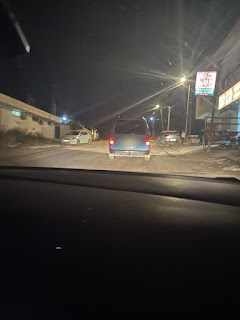“I hate this place so much,” I thought.
It’s was 7:46 PM and the checkpoint to get home was closed early. “Why does it have to be so hard?!” I breathed away the tears.
This is what it’s all about, isn’t it? They want the Palestinians to hate being here. They want to drive them out by nickel and diming away their sanity.
Side roads are closed with massive boulders so a hundred feet away another path must be made to the same road. Main roads have been bulldozed so already dilapidated cars take an even greater beating.
Every nugget and every crumb adds to an almost certain resignation, but then why can’t I see it in Palestinian faces? How do they smile? How do they find something extra in nothing to share with me and their neighbors? How do they find joy given the incessant chipping away of peace and stability?
We are forced to turn around at the checkpoint, behind us was a Palestinian. We yell, “as-salamu alaykum,” out the window and they stop to roll down theirs. We yelled the town we were trying to go to, the driver nodded his head and said to hurry. We raced through the town following them. They were going to lead us home. Even though they are the ones who this labyrinth is designed to inconvenience, their faces show us nothing but kindness and warmth. With smiles they gladly help us. The only time tonight I can find a smile is looking back at them.
I don’t hate this place. Even though they want us to hate it, even though they want them to hate it. I love Palestine, and they love their home. Their spirit will be unbroken and inspired by their beautiful resilience. The tears come again and my heart is filled by their spirit.




